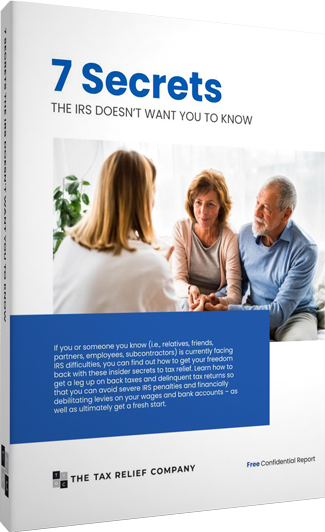Handing an IRS Audit – IRS audits are rare these days. State tax authorities also conduct audits. Sometimes tax audits are random, but the IRS usually selects taxpayers based on suspicious activity.
Most IRS audits are done by mail and are much less intrusive than the dreaded audit where the taxpayer personally meets with the IRS at their office (called an “office” or “desk” audit) or at the taxpayer’s home or place of business (called a “field” audit). Working with us means you generally do not speak or meet with the IRS.
The IRS audited almost 1.0 million tax returns, approximately 0.5 percent of all returns filed in Calendar Year 2017. Or 1 in 184 taxpayers were selected for audit. For taxpayers filing individual tax returns, the likelihood of audit is 1 in 161. Filing your return accurately and honestly can reduce your chances of being selected and increase the odds of a favorable outcome.
According to IRS statistics, people in higher tax brackets and people who report no income at all get the most attention. Those earning more than $1 million were audited at a 4.4 percent rate. If you’re a high earner, know that you may hear from the IRS.
 Here are thirteen of the biggest red flags that are likely to land you in the IRS audit radar.
Here are thirteen of the biggest red flags that are likely to land you in the IRS audit radar.
- You aren’t reporting cryptocurrency – When you buy something with cryptocurrency, it’s a taxable transaction. The IRS receives information from digital currency wallet Coinbase and may apply increased review to your tax return if it doesn’t reflect the data provided.
- Failing to report all of your income – You may want to submit only your W-2 form from your primary job and keep the freelance job income on your Form 1099 to yourself. The IRS already knows about income that appears on your W-2 and1099 income forms because the company you worked for a submitted copy to the IRS. It’s only a matter of time before the IRS discovers your omission.
- Claiming too many charitable contributions – Don’t report false donations. If you don’t have the proper documentation to prove the validity of your contribution, don’t claim it.
- If you are self-employed – Business owners may attract additional review from the IRS. They tended to examine the returns of self-employed filers at higher rates than it did comparable non-business filers, according to IRS data. If you claim self-employment income and deductions through your individual income tax return, double-check your numbers and keep a paper trail to back up tax deductions.
- Reporting too many losses on a Schedule C – This one is for the self-employed. If you are the boss, you might be inclined to hide income by taking personal expenses as business expenses. But before you do, consider the suspicion that too many reported losses could arouse.
- Deducting too many business expenses – To be eligible as a deduction, purchases must be ordinary and necessary to your business.
- Claiming a home office deduction – The IRS defines the home office deduction as reserved for people who use part of their home “exclusively and regularly for your trade or business.” That means a home office can qualify if you use it for work and work only.
- Using round numbers – When making your calculations, be precise, and avoid making estimations. If the numbers all end in a double zero, it can look fishy.
- Typos or math errors – It might be an honest mistake. Still, if something looks questionable, such as an incorrect Social Security number or calculations that don’t add up, you may bring on additional scrutiny from the IRS.
- You have three consecutive years of business losses – For self-employed filers who have reported losses for three consecutive years, it does create a potential audit risk because the IRS will challenge that to see if it’s a business or it’s a hobby. A loss from a business is deductible; a hobby loss is not.
- You deduct 100% of your car for business – When listing the business use of a work-related automobile, the IRS knows that it’s unlikely that you’re using it 100 percent for work. We recommend that clients use a mobile app to track mileage.
- Mobile phone usage – unless you have a 2nd or 3rd mobile phone deducting 100% of the bill (which may include your spouse and children) will bring additional scrutiny.
- It doesn’t make sense – If you’re claiming large deductions on a small salary, you could find yourself required to provide additional documentation from the IRS.
As long as you file taxes accurately and keep good records, you shouldn’t fear a tax audit. If you’re concerned about your tax return or the paperwork involved, meet with a competent tax preparer and make sure you keep accurate records throughout the year.


